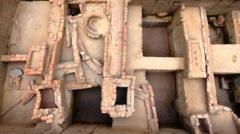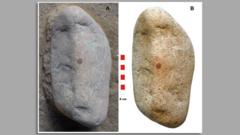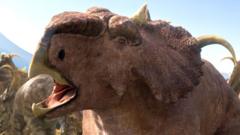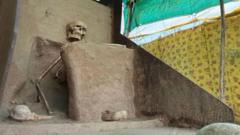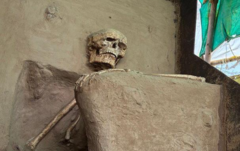A recent archaeological find in Croatia has revealed the skeletons of seven individuals believed to be Roman soldiers from 1,700 years ago. The remains were discovered in a mass grave at the historical site of Mursa, modern-day Osijek, where excavations were conducted in 2011.
These male skeletons, found with various injuries, were reported to be 'completely preserved' during the excavations. Mursa had been a significant Roman settlement since it was conquered in the first century BC, serving as a hub for trade and craftsmanship.
Research from several European archaeological institutions has shed light on the soldiers' lives and their potential cause of death. According to the findings, the men ranged in age from 36 to 50 years old and were noted to be taller-than-average individuals with 'robust' physiques. Their diet predominantly consisted of vegetarian offerings, supplemented occasionally with meat and seafood.
Analysis indicated all seven men suffered from various healed and unhealed injuries, including blunt force trauma, as well as puncture wounds which could have been caused by weapons like arrows. Additionally, they were found to have likely suffered from pulmonary diseases before their demise.
Genetic analysis of the remains revealed a mix of ancestries and indicated that none of the soldiers were local to the region, aligning with theories that suggest they may have been recruited from various parts of the Roman Empire.
The research posits that these soldiers could be victims of the 'Crisis of the Third Century,' particularly linked to the battle of Mursa in 260 CE, a time marked by numerous power struggles within the Empire.
In an unusual twist, the skeletons were found in what is believed to have originally been a water-well, as mass burials were uncommon in Roman practices and typically reserved for extreme casualty events. Archaeologists suggest that the remains were likely discarded hastily.
This pivotal archaeological discovery continues to provide insight into the Roman Empire’s violent history and the societal conditions of its soldiers during a tumultuous era.












